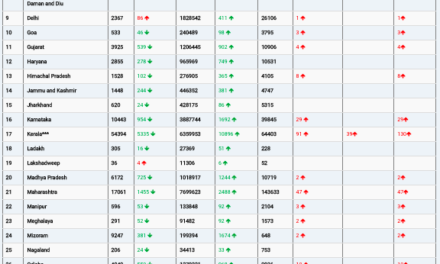In the demanding world of healthcare, finding time to eat healthily can seem impossible. Catherine Harmon Toomer, MD, recalls her med school days when the mantra was to eat as quickly as possible whenever there was a moment. This mindset led to unhealthy eating habits, and by her second year as a practicing family medicine physician, she had gained significant weight and was diagnosed with type 2 diabetes and cardiomyopathy. A heart failure diagnosis at 36 was her wake-up call, highlighting the urgent need for healthcare professionals to prioritize their nutrition.
Toomer’s story is not unique. Many healthcare professionals struggle to balance their demanding jobs with maintaining a healthy diet. John La Puma, MD, FACP, co-founder of ChefMD, emphasizes that the constant availability of junk food, using food as a stress reliever, and the lack of time for wellness habits contribute to this challenge. The culture in medicine often devalues self-care, making it difficult for physicians to prioritize their own health needs.
Practical Tips for Healthy Eating
Despite these challenges, adopting healthier eating habits is achievable. Here are some doctor-tested, real-life strategies:
1. Something Is Always Better Than Nothing
Amy Margulies, RD, LDN, stresses the importance of not skipping meals, as it can lead to overeating later and negatively impact energy levels and concentration. Simple changes, like eating every 4-5 hours, can prevent energy crashes. For instance, Hélène Bertrand, MD, found snacking on nuts or seeds and eating higher cacao chocolate bars helped her maintain better energy levels throughout her long days.
2. Torpedo Temptation
Managing cravings for unhealthy snacks in the break room can be challenging. Margulies suggests bringing a small portion of your favorite treat, such as dark chocolate and fruit, to avoid the temptation of consuming larger quantities of sweets available at work. One innovative strategy from La Puma’s patient involved keeping cherry tomatoes in a candy dish to encourage healthy snacking.
3. Preparation Is Key
Meal prepping doesn’t have to be daunting. Buying pre-cut vegetables and cooked chicken breasts can simplify the process. Margulies encourages preparing and portioning balanced meals and snacks, like fresh and dried fruit or high-protein snacks, to have on hand for busy days. Jess DeGore, RD, LDN, CDCES, advises her clients to prepare lunches over the weekend and keep nutritious snacks like fruit and nuts at work.
4. Automate Healthy Choices
Keeping healthy snacks readily available can make a significant difference. Lisa Andrews, MEd, RD, LD, recommends stocking up on fiber and protein-rich options such as oatmeal packets, Greek yogurt, protein bars, fresh fruit, nuts, and dried chickpeas. Having a lunch bag with a cooler pack can also help keep perishable items fresh.
5. Consider Meal Delivery Services
Though they can be pricey, meal delivery services can be a worthwhile investment for busy healthcare professionals. Janese S. Laster, MD, highlights the convenience of having meals delivered to your office, reducing the temptation to skip meals due to time constraints.
6. Stay Hydrated
Staying hydrated is essential, as hunger can often be mistaken for thirst. Margulies recommends choosing water over soda or energy drinks to avoid unnecessary sugars, calories, and caffeine.
Advocate for Healthier Work Environments
Improving the nutritional environment at work can be challenging but beneficial. Jabe Brown, BHSc (Nat), suggests advocating for initiatives like protected break times, more nutritious cafeteria options, healthier vending machine offerings, and educational workshops on nutrition.
A Personal Commitment to Health
For Toomer, taking time off work to focus on her health was a crucial step. After losing over 100 pounds, she founded the TOTAL Weight Care Institute to help other healthcare professionals improve their health. Making gradual, realistic changes, like choosing more nutritious snacks or dedicating time to meal prep, can lead to lasting improvements in diet and overall well-being.
Incorporating these strategies can help healthcare professionals maintain their health and continue to provide the best care for their patients. As the saying goes, “An apple a day keeps the doctor away” — and in this case, helps the doctor stay healthy too.











